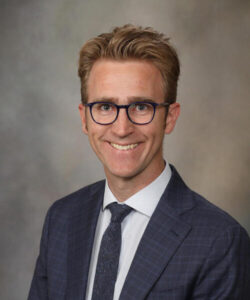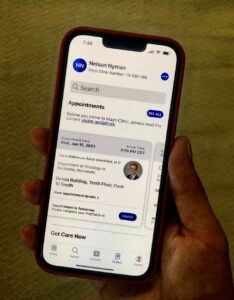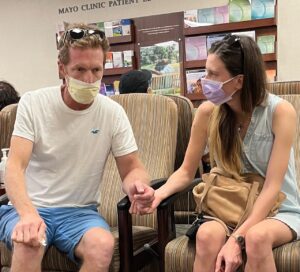Every day I try to meet five goals by the end of that day. These aren’t goals for healthy people as much as for someone like me who feels his life is on hold. If I have lots of time without something productive to accomplish, my mind quickly drifts to the worst case scenario.
Having these goals, then, is a way for me to live within my new reality but It’s dangerous to drift through each day thinking there’s not much I can do to change things and that everything is out from under my control. But setting these five goals has helped me see that such defeatist thinking is wrong. There are lots of things I can do. I even met these goals while in the hospital last week.
Here they are:
- I will complete a spiritual discipline twice each day, whether by myself or with someone else.
This might be our daily Bible reading as a couple that we do first thing every morning. It might be a prayer time, whether alone or with others. It could be journaling with an eye toward laying the words out before God.
This morning, for example, when my thoughts were straying in the wrong direction, I decided to write a gratitude inventory. It got the praises going inside of me and set a good tone for the day. It helped me look at the glass half full instead of half empty.
- I will perform an act of physical exercise twice each day.
This used to mean swimming a mile in the open ocean, jogging several miles, or working hard on a physically challenging project. Now it means a slow walk around the block or accompanying Ann Sophie on a short shopping trip.
Running or swimming is out of the question for me now, because I don’t have enough breath. But even in the hospital, I could gently walk down the hall and back.
- I will accomplish something every day toward my effort of waiting.
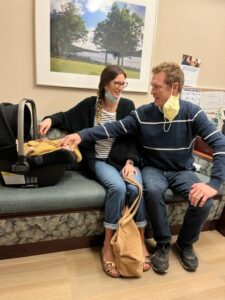 Living with lung cancer includes lots of waiting—waiting for appointments, test results, prescriptions, doctor-opinions, changes in medication. I’m also waiting to see what future, if any, I will have. At the moment, my life is in limbo. It could go either way. And so I try to accomplish something positive while I wait.
Living with lung cancer includes lots of waiting—waiting for appointments, test results, prescriptions, doctor-opinions, changes in medication. I’m also waiting to see what future, if any, I will have. At the moment, my life is in limbo. It could go either way. And so I try to accomplish something positive while I wait.
I think of it as doing the possible so God can do the impossible. For example, I can eat a healthy meal, rest intentionally, take my pills on time, attend an appointment.
- I will work to complete a physical task that will carry with it a feeling of accomplishment.
This might be doing the dishes, tidying a messy table, organizing a file, getting an oil change on the car. It’s something that can be checked off a to-do list in one shot, start to finish, something I’ve been wanting to do.
- I will intentionally do something with my family members and enjoy them in the process.
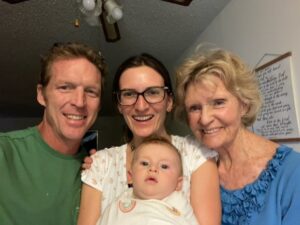 So much of what God wants us to do in life has to do with people. To miss that by plowing through a day while gritting my teeth just to make it is tragic. None of us know how much time we have with any one person. We need to appreciate people while we have them.
So much of what God wants us to do in life has to do with people. To miss that by plowing through a day while gritting my teeth just to make it is tragic. None of us know how much time we have with any one person. We need to appreciate people while we have them.
Our days in this apartment include lots of examples of this. We do almost everything together, like eating three meals together, listening to sermons together, attending medical appointments together, praying together, and sharing time with little Will. We wouldn’t have to do it like that, but we’re choosing to.
If I succeed in meeting these five goals each day, I can go to sleep at night knowing I’ve done what I can do, and the rest is up to God.
“Take every thought captive to the obedience of Christ.” (2 Corinthians 10:5)

